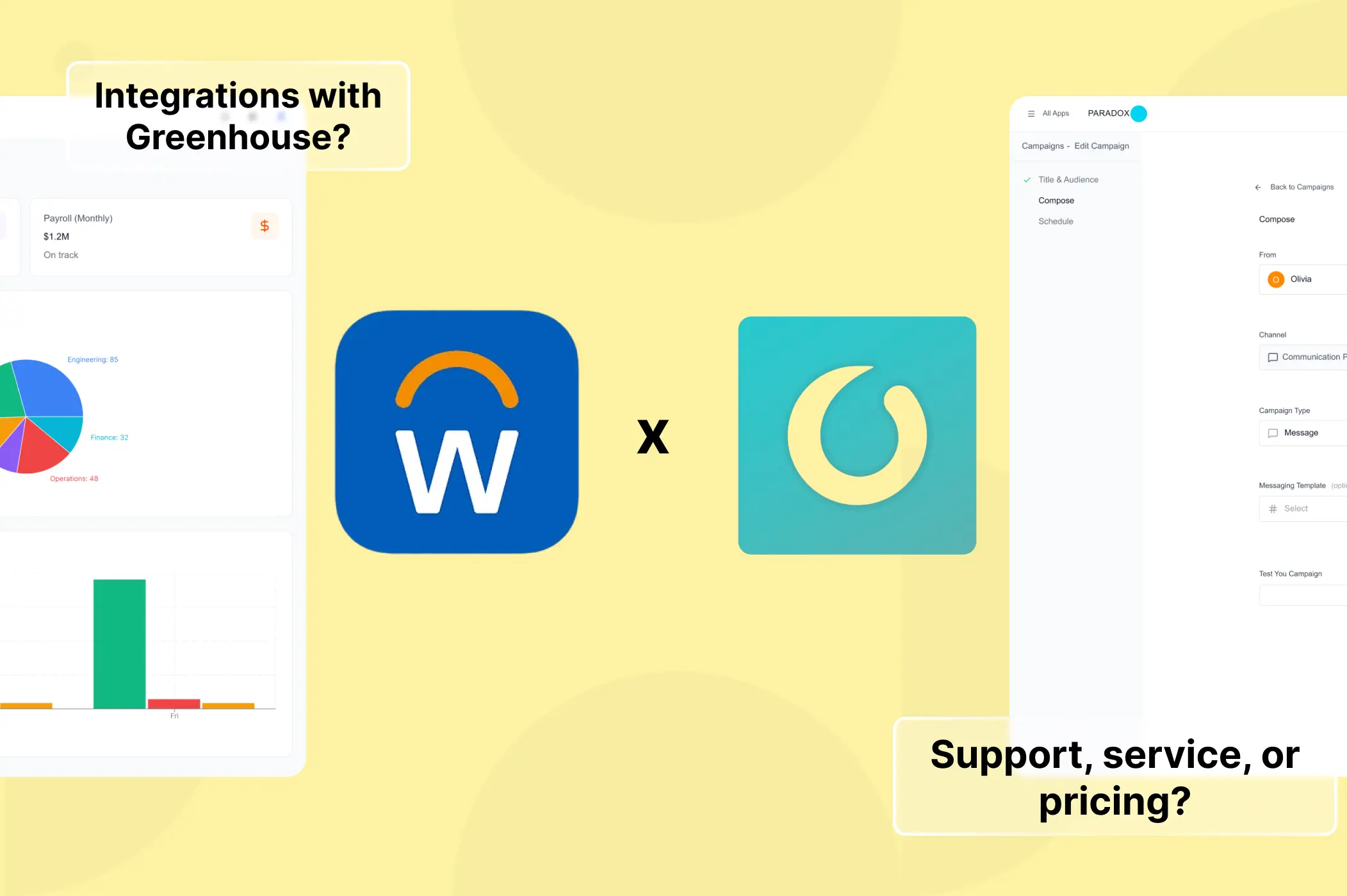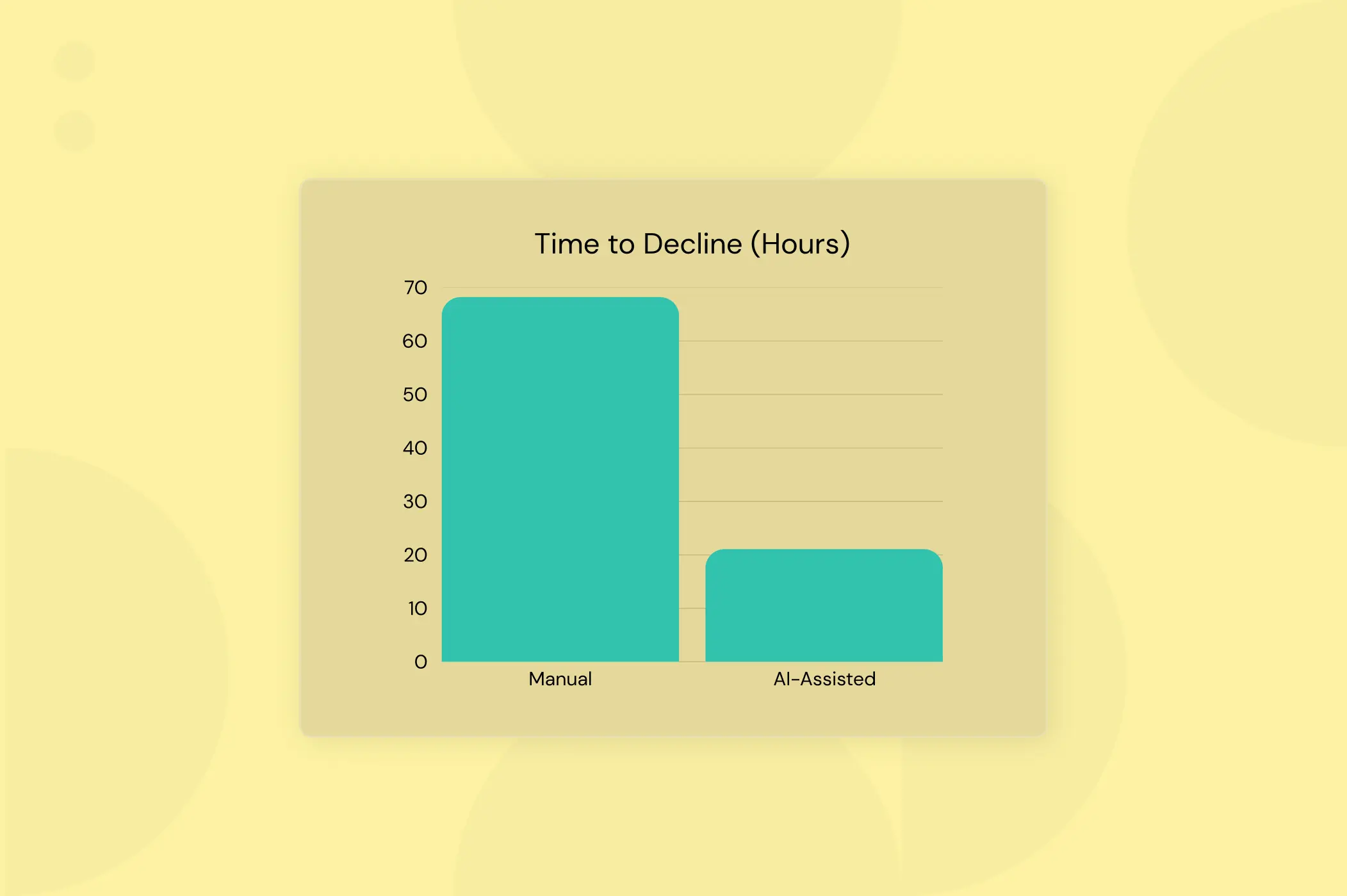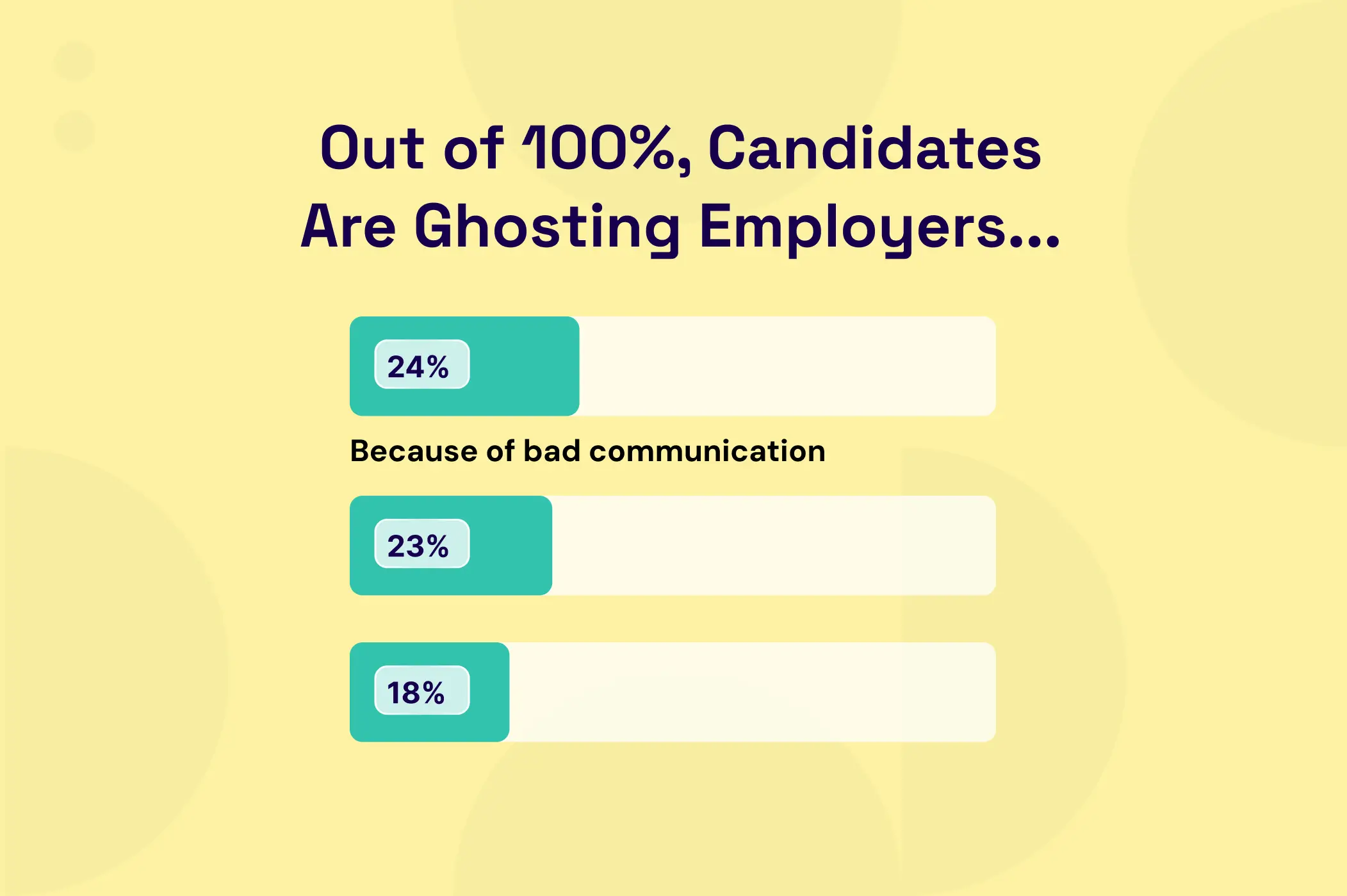Paradox has been one of the most loved tools in high-volume hiring.
Olivia made candidate engagement feel human via SMS messaging, and talent teams finally had a conversational assistant that worked at scale.
But now that Workday has acquired Paradox, many TA leaders are asking the same question:
“What does this mean for us if we already use Paradox today?”
We reviewed analyst reports, customer stories, and feedback from practitioners across HR tech forums to understand what users value most and what they’re quietly worried about as Paradox becomes part of a much larger ecosystem.
This post breaks down the top concerns, the features users love, and what options they have if they ever need a Workday-agnostic alternative.
TL;DR: Quick Answer
Paradox.ai, long beloved for high‑volume hiring workflows, is now part of Workday. Customers are wondering whether innovations will slow and integrations with non‑Workday ATSs will shrink. For now nothing has been deprecated, but the roadmap will inevitably tilt toward Workday customers.
Here’s what current Paradox customers are thinking about:
- What will happen to integrations with Greenhouse, iCIMS, Lever, UKG, and others?
- Will innovation slow down now that Paradox is inside a much bigger roadmap?
- Will support, service, or pricing change over time?
- Will Workday prioritize features that only benefit Workday-native customers?
The good news is that candidate.fyi delivers similar conversational flows and interview scheduling automation without locking teams into a single ATS.
Its AI‑powered tools can schedule 153 interviews per coordinator per week on average (about 5× the industry norm) and shrink time to schedule to about 27 minutes. Customers such as Yext report a 4.58/5 candidate experience rating and 48 % survey completion rate.
If you are on Paradox today and rely heavily on its text‑based assistant, staying put is an option.
If your teams value ATS independence, enterprise‑grade scheduling automation and a rich candidate portal, a migration to candidate.fyi may improve throughput and resiliency.
A typical migration takes a few weeks and preserves your existing ATS while giving you more flexibility.
Why Paradox Users Are Paying Attention
Paradox built its reputation by being flexible.
Olivia, its SMS‑based assistant, sits neatly on top of the ATS you already have and makes high‑volume hiring feel personal without adding more tooling. That independence is exactly why the acquisition is getting so much attention.
Talent leaders are not worried about Paradox today; they are looking at what it might become when Workday’s priorities drive the roadmap.
And the year after that.
When Workday describes the acquisition as creating a unified ATS + experience layer, that’s exciting, but it also signals that the product will naturally evolve with Workday’s priorities, not necessarily the broader ATS market.
That’s why users are asking reasonable, future-focused questions.
What Paradox Offers Today
Based on customer stories and analyst commentary, these are the core capabilities Paradox provides that current users rely on most.
Conversational Apply & Text-Based Flows
Olivia guides candidates through screening questions and simple applications via SMS. This chat‑centric approach works well for hourly and frontline roles.
Automated Interview Scheduling
Paradox identifies availability, books interviews and sends reminders. It handles reschedules and reduces email back‑and‑forth for high‑volume roles.
Tools for Hourly Hiring
The platform is designed for large applicant pipelines and decentralised locations, making it popular in retail and hospitality.
AI-Driven Candidate Communication
An AI assistant that responds to common questions and routes candidates through early steps.
Unlock the Future of Recruiting— Book a Demo Today!

What Users Are Quietly Concerned About
These concerns are logical questions talent leaders have when a beloved tool joins a large platform.
1. “Will Paradox still integrate as deeply with non-Workday ATS systems?”
Paradox became successful because it worked anywhere.
Greenhouse.
SAP.
Workday.
Custom systems.
Now that it’s part of Workday, some users worry the development focus will shift toward Workday-native customers, which is a natural fit for the business.
If Paradox tightens its roadmap to move in this direction, non‑Workday ATS users may need to cobble together manual steps or build custom connectors. That slows coordinators down and increases IT overhead.
2. “Will innovation slow down?”
Industry analysts often note that when a large platform acquires a specialized tool, the product roadmap can become broader and slower to evolve.
Users simply want to know that the features they rely on will keep evolving at the same pace.
3. “Will support still feel personal?”
Paradox’s support has been a major differentiator.
Talent teams want reassurance that customer success staffing and implementation support will stay as strong as the product grows. However, from what we've seen in the industry, moving from a specialised vendor to a large suite can mean longer response times and more generic support channels.
4. “Will anything about pricing or packaging change?”
No one expects immediate changes.
But teams are right to watch how Workday bundles or packages Paradox over the next few years.
These concerns are top-of-mind for teams that depend heavily on Paradox for frontline hiring.
If You Love These Paradox Features, candidate.fyi Has Them Too
Paradox users don’t want to switch tools.
They want reassurance.
Here’s how candidate.fyi delivers the same features with the added benefit of staying ATS-agnostic.
Conversational Apply & Text-Based Engagement
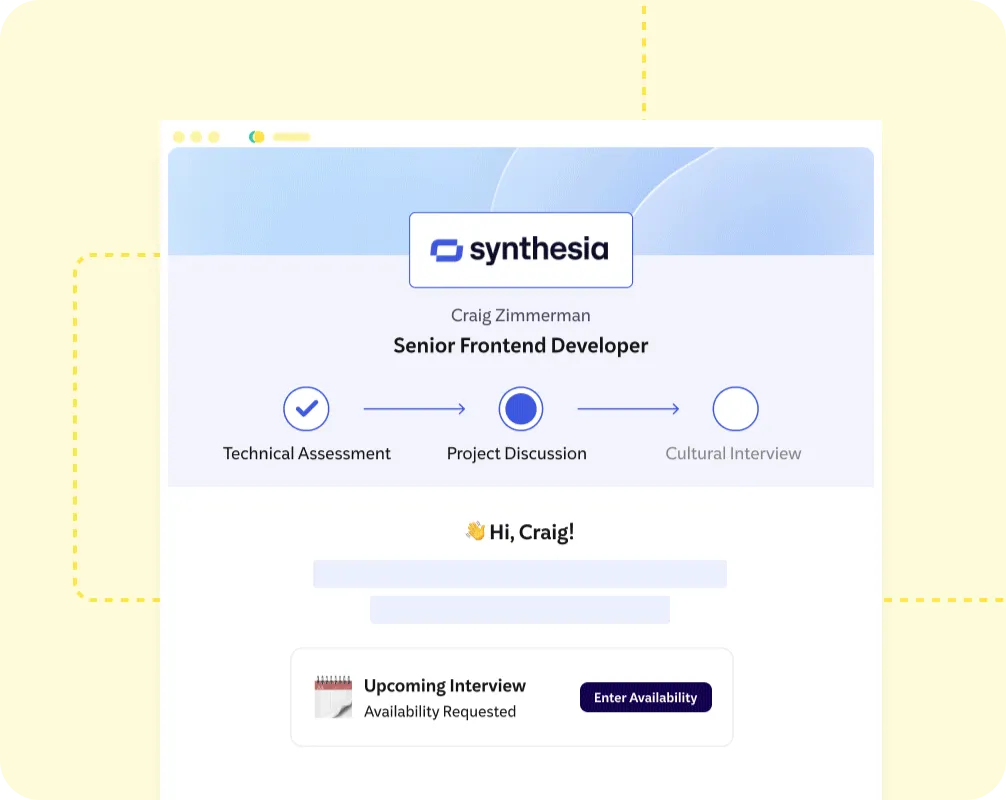
Paradox uses conversational SMS flows to move candidates through screening and early questions. It works well for hourly and frontline environments where mobile-first interactions make sense.
At candidate.fyi, we take a different approach because enterprise candidates rarely apply for roles through text. Instead, we built a mobile-friendly candidate portal that centralizes everything in one place: interview schedules, prep materials, interviewer bios, and next steps.
Candidates return to this hub again and again, resulting in an average 20 portal visits per candidate during their journey. And because feedback prompts appear inside the flow, our in-portal surveys see completion rates around 52%, far above the typical ~20% survey rate seen in most talent teams.
This portal creates the same clarity for candidates and offers better analytics for recruiting coordinators.
Automated Interview Scheduling
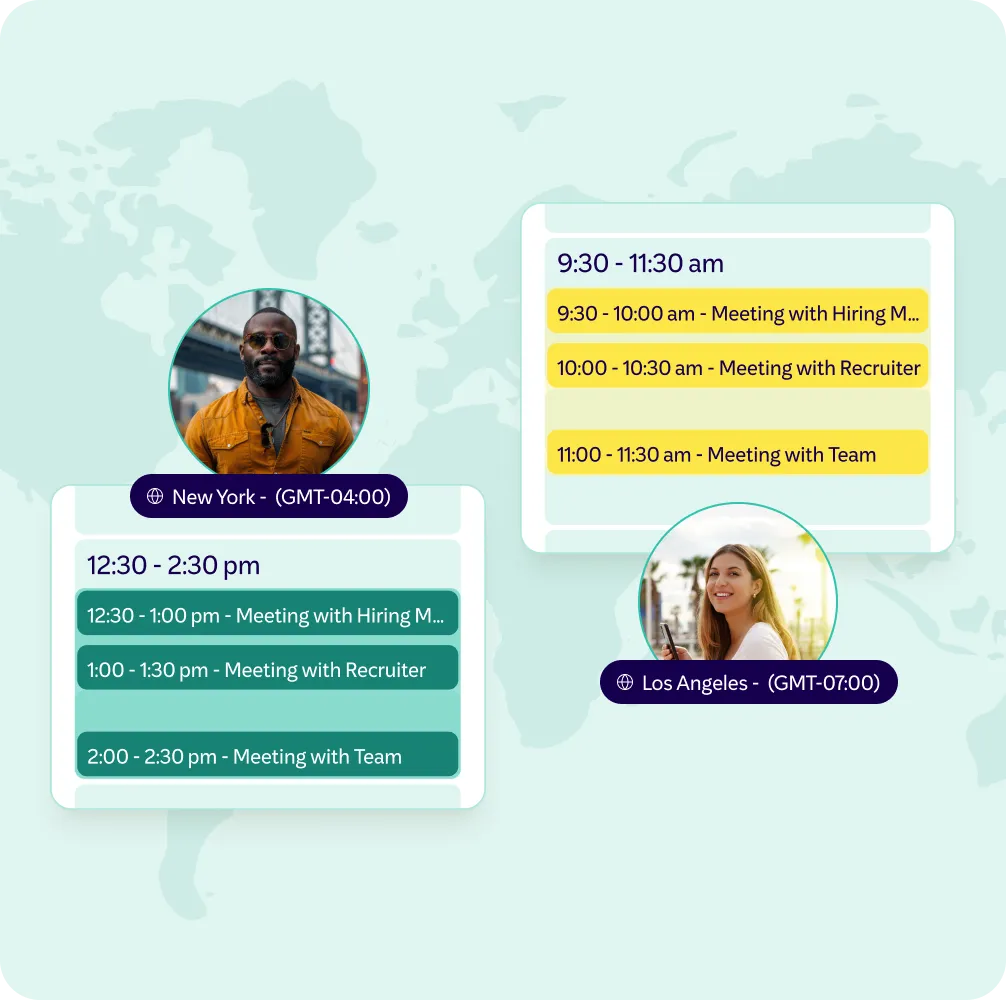
Paradox automates interview booking and reminders. It handles candidate availability and reduces back-and-forth communication for high-volume roles.
candidate.fyi builds on that foundation with features tuned for enterprise complexity. Our scheduling engine automatically balances interviewer pools so meetings don’t overwhelm the same people and time zones are managed automatically.
Further, candidate.fyi extends capability with a suite of AI features:
- AI Scheduling Summary. Instead of bouncing between emails, Slack messages and spreadsheets, coordinators see all relevant constraints and availability in one concise view. This reduces context‑switching and speeds up decisions.
- AI Query Assistant. Talent leaders can ask natural questions such as “What is our average time to interview this quarter?” and receive instant answers without building dashboards. This makes performance management simpler and more proactive.
- fyi AI Agent. The intelligent scheduling assistant drives candidate outreach, sends follow‑ups and reminders, and logs all activity in a shared task queue. It follows your tone and messaging preferences to ensure communications are on brand.
- AI Auto‑Replacement. When an interviewer cancels, fyi automatically finds a replacement based on pre‑defined rules (such as role seniority and department), books the new time slot and notifies the candidate. This eliminates a common failure point in high‑volume hiring.
These AI features translate into measurable outcomes. Internal data shows that coordinators using candidate.fyi schedule an average of 153 interviews per week (with automation enabled) versus an industry baseline of about 38 interviews per coordinator.
Median time‑to‑schedule drops to 26.8 minutes for self‑scheduling and 117.75 minutes overall, while median time‑to‑interview stands at about 5,647 minutes (≈3.9 days), far faster than the eight‑day norm.
This throughput means candidate.fyi can support the intense hiring volumes common among former Paradox customers.
Support for High-Volume and Multi-Team Hiring
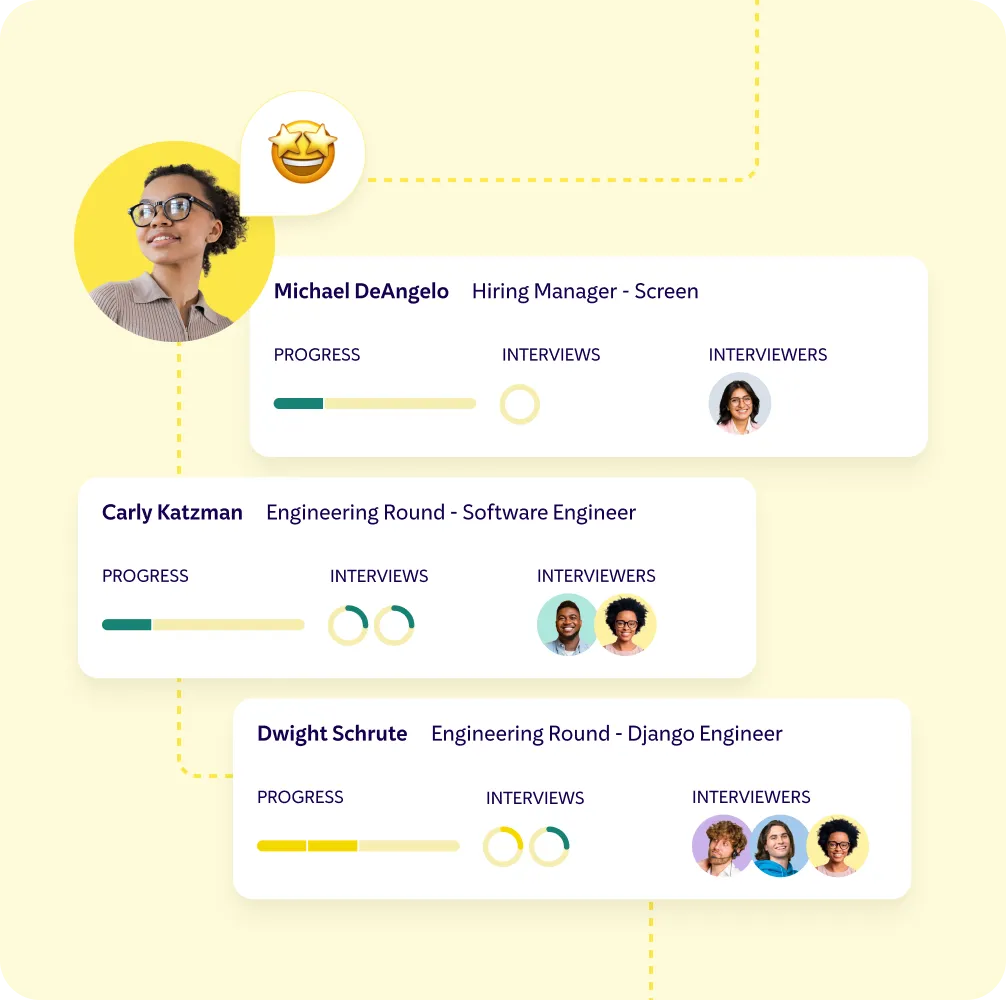
Paradox is well‑known in the hourly hiring market. candidate.fyi supports the same high-volume scenarios but also extends into complex enterprise interviewing:
Load‑balancing and interviewer pools. The platform creates profiles for interviewers that specify capacity limits and training areas. A coordinator can hover over an interviewer’s initials to see how many interviews they have scheduled and to avoid overburdening them. When reschedules happen, the system automatically pulls a qualified replacement.
Custom campus recruiting and high‑volume modules. When Yext became a candidate.fyi customer, the team built a module that automates campus recruiting logistics, which allowed candidates to select time slots via a QR code and syncing them back to Greenhouse. This feature has eliminated all‑night scheduling marathons and freed recruiters to focus on interviewing. It shows how the platform can handle thousands of interviews during peak events.
Centralised portals and culture showcases. Yext used to send generic emails through Greenhouse and Prelude. candidate.fyi’s portal consolidates schedules, interviewer details, prep materials and company resources into one interactive experience. This reduces candidate confusion and frees recruiters from responding to one‑off questions. In global hiring scenarios, candidates can access information outside business hours, improving responsiveness.
When you're coordinating a seven-stage panel for a senior role, candidate.fyi handles the scheduling engine and the same visibility layer.
Implementation & Support
candidate.fyi delivers partnership and real-time communication. Clients get a dedicated Slack with immediate access to their CSM. No need to wait in ticket queues.
Further, we have integrations with more than 40 ATS platforms work out of the box, and our team ensures your workflow reflects exactly how your recruiting organization operates.
As your hiring process evolves, your workflow evolves alongside it. And because the platform stays ATS-agnostic, you’re never locked into a single vendor ecosystem.
Paradox vs. candidate.fyi: Feature Comparison
The Bottom Line
With Workday now steering the product, it’s normal for current customers to wonder about long-term direction and innovation speed.
If you love the features you have today but want to keep your future flexible, candidate.fyi offers the same strengths with ATS-agnostic reliability and a scheduling engine built for enterprise reality.
We're here when you want to explore your options.


